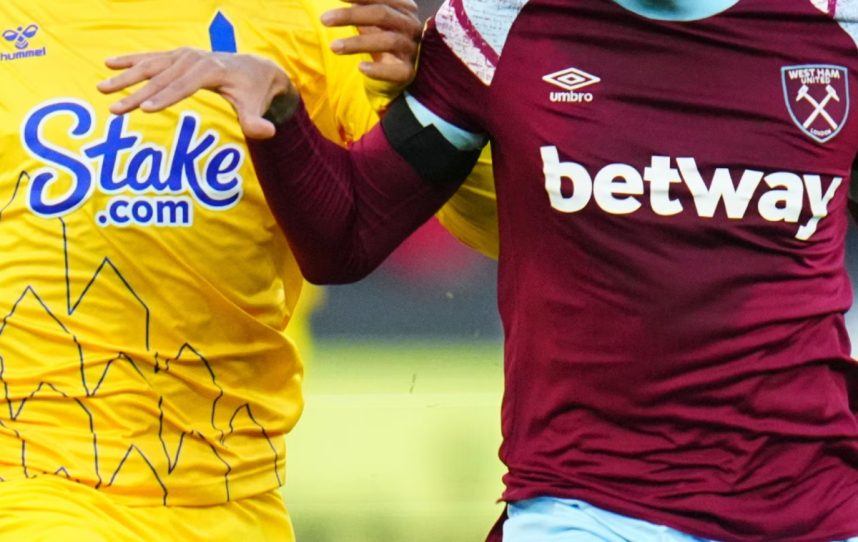GambleAware Survey Finds Robust Public Support for Firmer Advertising Rules
Posted on: July 5, 2024, 09:32h.
Last updated on: July 5, 2024, 09:32h.
New research commissioned by GambleAware, the UK’s leading nonprofit committed to educating the public on gambling harms and tailoring prevention and treatment programs, finds there’s robust public support for stricter regulations for gambling advertisements.

Market research firm Ipsos found that 67% of the public thinks there are too many gambling adverts in the media, and 66% say they’re concerned about how gambling ads impact children.
Millions of people across the country have been coming together this summer, excited to watch the Euros. However, our research shows that most of them feel there is too much gambling advertising in the media and around football,” said Zoë Osmond, chief executive at GambleAware. “Exposure to gambling advertising normalizes gambling, and makes it seem like just ‘harmless fun’ without showing the risks of gambling addiction and harm.”
The GambleAware survey aligns with recent research conducted by The Football Supporters’ Association that found that more than seven in 10 football fans are concerned about the amount of gambling marketing they see in and around the game.
Action Points
The UK ushered in its next government yesterday with a landslide victory for Sir Keir Starmer’s Labour Party, who became prime minister today. Labour candidates assumed 412 of Parliament’s 650 seats and returned the party to control for the first time since Tony Blair ran things around the turn of the century.
Osmond is calling on the new government to implement narrower gambling advertising regulations.
The GambleAware report recommends that gambling marketing at sporting events be prohibited, including gambling sponsorships on footballer jerseys. The study also suggests that the government ban all gambling advertising on television, streaming services, and radio during sports programming.
GambleAware also thinks gambling marketing materials should be required to come with health warnings similar to tobacco and alcohol products.
Our survey data shows a large majority of fans are concerned about the prevalence of gambling advertising around football, whether that’s shirt sponsors, pitch side hoardings, or on TV coverage,” said David Rose, deputy chief executive of The Footballer Supporters’ Association. “Our partnership with GambleAware helps us to highlight those concerns, and allows us to show supporters where they can get help if they feel like their gambling has become a problem.”
The Premier League last year announced clubs would no longer be allowed to offer sponsorships to gambling companies for the front of players’ jerseys. The rule becomes effective for the 2026-27 season, though many clubs have already done away with gambling ads on jersey fronts.
Industry Pushback?
GambleAware is primarily funded by the industry it seeks to restrict how it advertises. As Casino.org reported in May, GambleAware received £46.5 million (US$59 million) from operators in the 2022-23 financial year.
GambleAware has been criticized for being too close to the industry due to its reliance on the operators to keep its nonprofit afloat. Proposing that the new UK government pass stricter laws to limit how the gambling industry attracts and retains customers could face pushback from the industry.
Along with GambleAware, the former UK government faced criticism from the public after it dropped legislation to strengthen advertising rules around gambling. Lawmakers at the time said there was “little evidence” that such advertising was causing public harm.
Dr. Matt Gaskell, who runs the NHS Northern Gambling Service, which provides specialized therapy for gambling addicts, said the government simply folded to the gaming interests.
There is clear evidence that gambling advertising drives consumption, which increases harm,” Dr. Gaskell said. “This is well known internationally, and as a result, many European countries have taken action to protect their communities with stringent advertising curbs.”
“Our children, young people, and those experiencing harm or in recovery continue to be exposed to ubiquitous gambling advertising, and the government has chosen to expose them to harm,” Dr. Gaskell added.
Related News Articles
Ivan Toney: Banned EPL Star Bet on His Own Games, FA Says
Online Gambling Ad Restrictions Gain Traction
Most Popular
FTC: Casino Resort Fees Must Be Included in Upfront Hotel Rates
Genovese Capo Sentenced for Illegal Gambling on Long Island
NBA Referees Expose Sports Betting Abuse Following Steve Kerr Meltdown
UPDATE: Former Resorts World & MGM Grand Prez Loses Gaming License
Most Commented
-
UPDATE: Whiskey Pete’s Casino Near Las Vegas Closes
— December 20, 2024 — 31 Comments -
Caesars Virginia in Danville Now Accepting Hotel Room Reservations
— November 27, 2024 — 9 Comments -
UPDATE: Former Resorts World & MGM Grand Prez Loses Gaming License
— December 19, 2024 — 8 Comments -
NBA Referees Expose Sports Betting Abuse Following Steve Kerr Meltdown
— December 13, 2024 — 7 Comments
















No comments yet